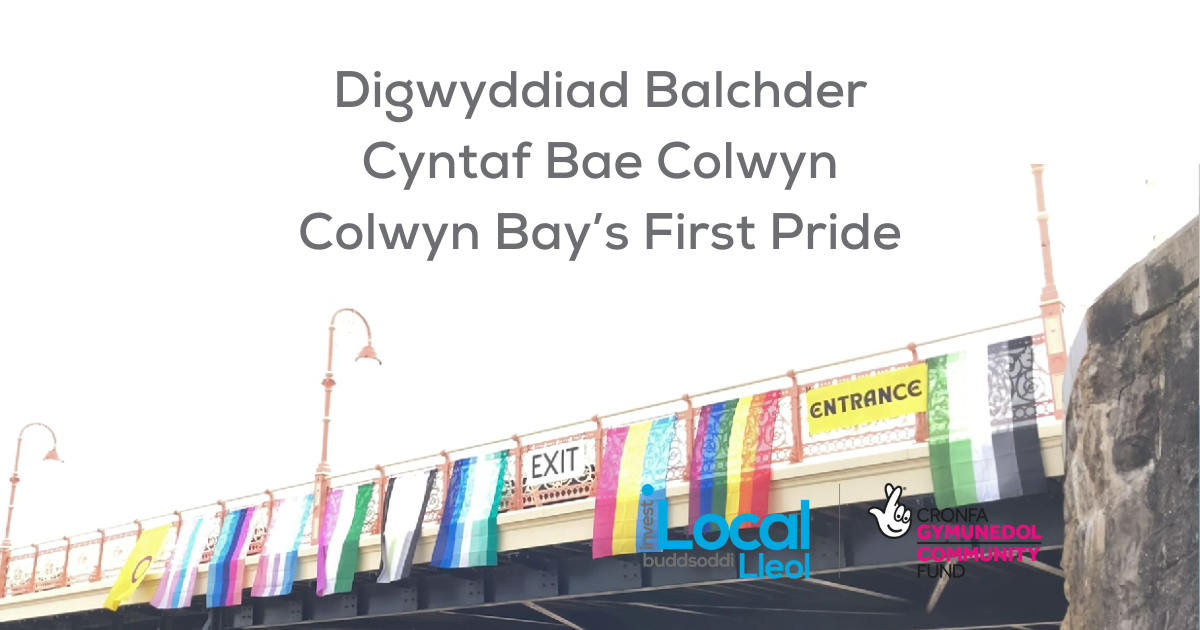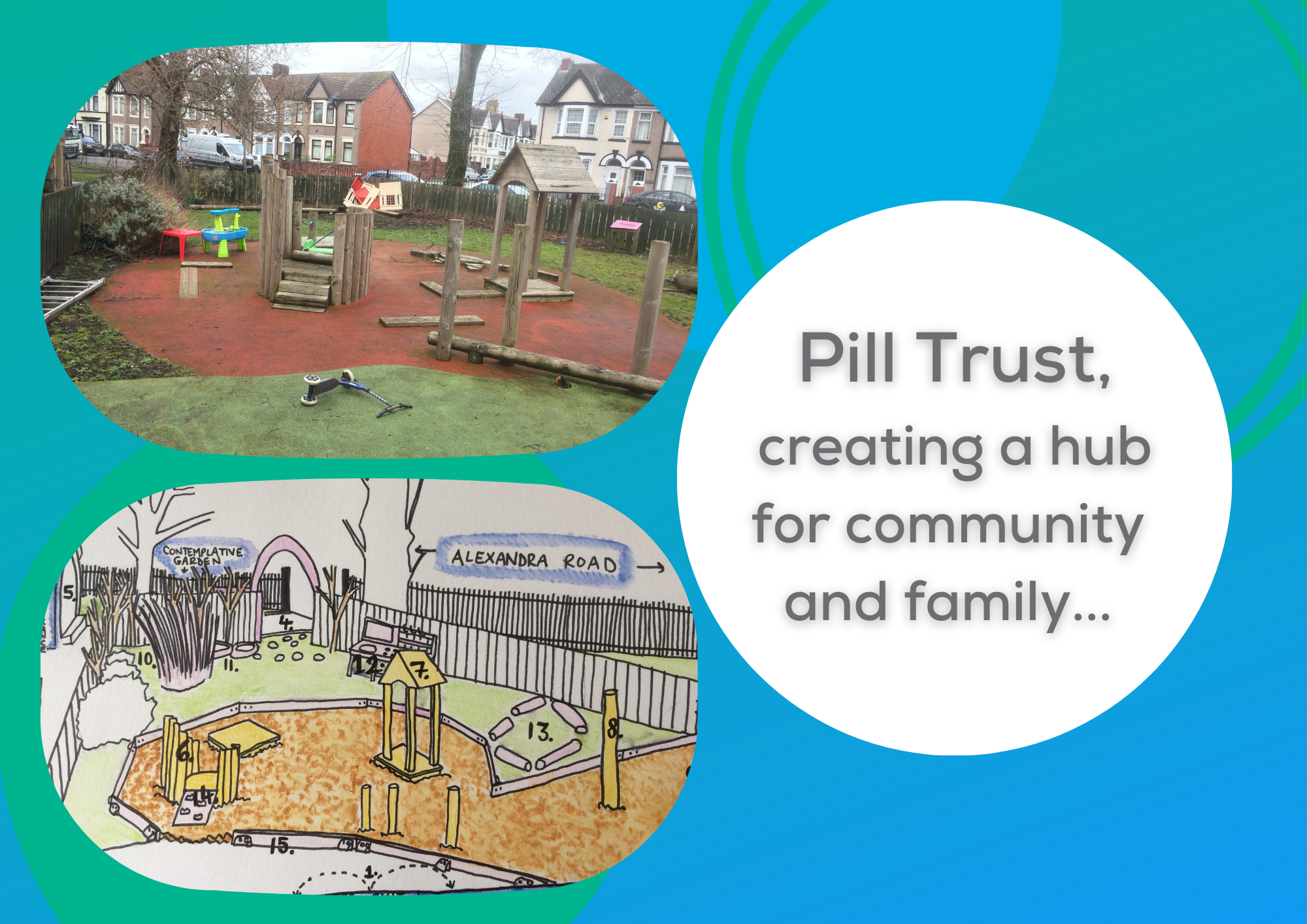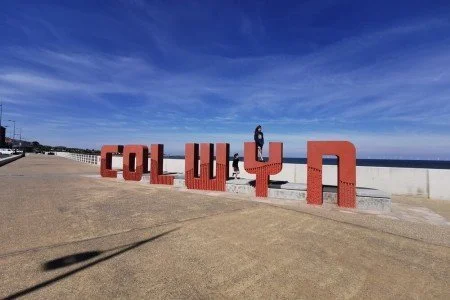COMMUNITIES BEYOND COVID: THE KRUGER REPORT
Chris Johnes, Chief Executive of Building Communities Trust, discusses a new report commissioned by the UK Government on encouraging and supporting local community activity after Covid.
Much of the talk about the social responses to Covid-19 has been about the actions of communities and the huge amount of work by local people to support their neighbours in all parts of the UK.
It is estimated (by the Office for National Statistics) that 4000 ‘mutual aid groups’ were quickly set up in local communities during lockdown, part of a general wave of local support in addition to the work of existing charities, community groups, religious organisations and businesses.
And certainly here in Wales both Government and non-state funders – like the Lottery and independent foundations – also weighed in with an unprecedented injection of flexible monies to support community initiatives.
This outpouring of community action may have been bigger, more prominent and better supported than what was happening before the virus struck, but it wasn’t really new.
Before the virus there were hundreds of organisations providing mutual support and opportunities across Wales and, of course, far more across the UK as a whole.
But there has been relatively little thought given on a policy level to supporting community action more holistically at either UK or Welsh Government levels, despite the social, economic and environmental benefits it already brings.
That might just be beginning to change in the wake of the first lockdown.
LEVELLING UP OUR COMMUNITIES
In June, the UK Government commissioned recently-elected Conservative MP Danny Kruger to produce a report on the role of communities during the recovery phase from Covid. This was published in September as Levelling up our communities: proposals for a new social covenant. It was interestingly the second major report on communities from a centre-right perspective published last month after the Onward report on the State of our Social Fabric.
Given the current political climate it is likely that the report will struggle to get much of a hearing in Wales (or indeed Scotland) but there are reasons for taking the report on its merits. One obvious one is the author’s background; Danny Kruger himself spent seven years working in youth charities in London. While this brings a particular perspective that doesn’t always transfer well to Wales (or indeed smaller places in England), he does have a strong commitment and understanding of much of the world he’s describing.
The report itself does two interesting things which may undermine its chances of being taken up swiftly by the current Government, but make it more rigorous and useful in the long term.
Firstly, it is clearly based on significant engagement with English civil society, meaning a diversity of well-informed perspectives have informed the report.
And secondly, although his terms of reference were largely a rehash of a deeply London-centric perspective on the third sector and a limited understanding of community-based organisations, he has only partially followed them in producing a report which actually tries to address the issues important for promoting community initiatives.
ISSUES IN WALES
And those issues are ones we can easily recognise in Wales as being critical, not so much to recovery – as that may be a long way off – but as to what the next set of challenges are. Kruger identifies mass unemployment, the risk of deep poverty, serious mental health problems and isolation.
He is very blunt about the impacts of spatial inequalities and austerity, much of which would be pinned on the 2010-15 Coalition Government, though as he rightly says, Governments of all colours have contributed to these inequalities. In Wales the centralisation of public services as a response to austerity has also contributed to these inequalities and often not been recognised as a valid concern by either local or central Government.
As Kruger says: "Under austerity, while the principal public services were protected, deep cuts were made to local authority services and social infrastructure. These are the institutions that reduce demand for expensive public services, but do not deliver immediately quantifiable outcomes and are, anyway, not statutory obligations on councils… and many communities saw a sad depletion of the amenities and services that helped hold them together.
"These reductions continued the legacy of loss that had afflicted communities since well before 2010. Over the last generation public services have become more impersonal and bureaucratic, driven by targets and quasi-markets which eroded their links with local places."
And he’s ambitious about what should come next:
"The era just ending was governed by economic and social doctrines which have caused us to become the most regionally unequal country in the developed world, with a range of chronic social challenges. The era now opening must address these challenges by putting communities at the heart of policy making.
"The experience of the recent crisis - the willingness of local people to step forward and collaborate, the flexibility shown by public services and the social commitment of businesses - shows what is possible. Add the extraordinary new dynamics of data and digital innovation, and a wholly new paradigm is possible in which community power replaces the dominance of remote public and private sector bureaucracies."
Kruger proposes four pillars to underpin his covenant, which should in principle enjoy quite significant interest in Wales given their complementarity with large swathes of existing public policy, including the Future Generations Act.
Kruger underpins his approach with the principles of embedding social and environmental purpose in public policy and business activity; ensuring local participatory decision-making; taking a strength-based approach to working with people and communities; and developing social infrastructure.
POLICY PROPOSALS
The policy proposals emanating from the report include a range of ideas which would help community-based work to prosper. These include making procurement practices more suited for delivering social value (heard that one before?), A Community Power Act, more structured volunteering pathways and a range of approaches to enhance place-based work, including investing in social infrastructure and new flexible funds for long-term community-led work.
Interestingly he prioritises the collection and dissemination of better data about the value and contribution of civil society organisations to the economy (though some of the proposals do threaten, in the wrong hands, to produce more bureaucracy for even quite small organisations). Kruger ascribes to the views of Andy Haldane that the sector’s economic value is significantly undervalued and may be worth up to £200 billion a year in the UK, which has considerable implications for how the sector’s wider contribution to public good is seen.
The Kruger report could never address the enormity of issues behind the massive challenges facing our communities, especially our poorer ones, but it does provide a number of stimulating ideas about how community activity which brings locally owned benefits to those areas can be encouraged and supported. No Government will adopt it in its entirety but it’s worth careful study rather than being simply dismissed because of its origin.































